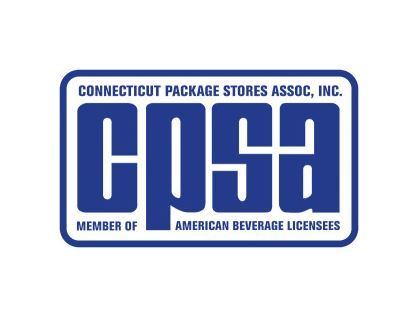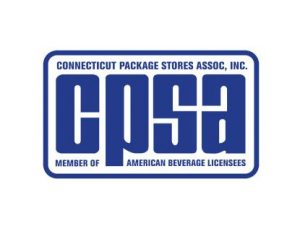

Sean Hughes, Account Director, Connecticut Package Stores Association.
Next Session Promises a Contrast
By Sean Hughes, Connecticut Package Stores Association
The Connecticut General Assembly’s 2022 legislative session concluded a little less than a month ago on May 4. This is what is considered a “short session,” which was only four months long. After last year’s highly eventful session that included proposals allowing wine to be sold in food stores and beer to be sold in large national box stores, this session was relatively quiet. The chairs of the General Law Committee, which oversees liquor regulations for the General Assembly, decided that this was going to be a noncontroversial year in terms of concepts of bills that the committee would raise.
While it was not as eventful, there were still two large bills that passed, making some changes to liquor law in Connecticut. House Bill 5330, “An Act Concerning Cannabis Advertising and The Department of Consumer Protection’s Recommendations Regarding Various Revisions to the Consumer Protection Statutes,” was one of the two large liquor-related bills which passed the legislature this year. The bill had several different sections that made minor changes to the liquor statutes.
The first change was the establishment of a new permit for religious wine retailers, which was proposed when the Department of Consumer Protection (DCP) was notified that some locations were potentially operating without liquor permits in Connecticut. This new permit allows religious retailers that are primarily engaged in selling religious supplies that do not contain alcohol, to sell sacramental wine to religious organizations.
The second change in this bill allows for curbside pickup for package stores to continue permanently. The ability to sell curbside was granted under an Executive Order during the pandemic to mitigate the spread of COVID-19. The pickup of products must occur in the parking lot of the permittee’s establishment, and cannot take place in a separate parking lot not associated with the business in which the product was purchased from.
The third change from HB 5330 continues the current practice of off-premise consumption of sales and deliveries of alcohol in sealed containers by restaurants. This was the product of another executive order, which was proposed to help restaurants that had closed due to the pandemic and were only able to operate their business using a takeout business model. This is not a permanent change and will expire on June 5, 2024.
 The bill does include restrictions on the sale of alcohol to-go by restaurants. The order for alcohol must be accompanied by food. The container must be sealed in the manufacturer’s original container, and if it is a mixed drink, the cup must be covered in a way that prevents consumption without removing the tamper-evident lid, cap or seal. These deliveries with alcohol can only take place during the hours that a package store is allowed to be open as well. There are also limitations on how much a customer can purchase of 196 ounces for beer, one liter for spirits, and 1.5 liters for wine.
The bill does include restrictions on the sale of alcohol to-go by restaurants. The order for alcohol must be accompanied by food. The container must be sealed in the manufacturer’s original container, and if it is a mixed drink, the cup must be covered in a way that prevents consumption without removing the tamper-evident lid, cap or seal. These deliveries with alcohol can only take place during the hours that a package store is allowed to be open as well. There are also limitations on how much a customer can purchase of 196 ounces for beer, one liter for spirits, and 1.5 liters for wine.
Lastly, the fourth change in HB 5330 is the expansion of bottle sizes that can be sold. DCP proposed this change to adhere to the new standards of fill recently approved in a ruling by the US Alcohol and Tobacco Tax and Trade Bureau. This expansion incorporates European bottle sizes, which will allow for the import of some products previously not available for sale at retail.
The new sizes that are allowed are 700, 720, and 900 milliliters. The second bill that contained changes to the liquor statutes was House Bill 5331, “An Act Concerning the Liquor Control Act and Related Statutes.” This bill expands allowances for Connecticut’s small manufacturers of wine, beer, and spirits.
The first part of the bill eliminates the “wine festival” permit and establishes a new festival permit for all manufacturers of alcoholic liquor. The festival permit allows a festival sponsor to organize and sponsor a festival in Connecticut by inviting eligible manufacturers to participate for up to four consecutive days. Manufacturers can offer tastings and limited retail sales of their products.
Another part of HB 5331 allows breweries in Connecticut to sell, at retail, a beer they brew in collaboration with another brewery. Prior to this allowance, Connecticut craft café permittees were generally prohibited from purchasing the same type of alcoholic liquor they manufacture.
The next legislative session, which will be a long session, will begin in January 2023. The last “long” session of the General Assembly was in 2021, when the General Law Committee took up bills that would allow wine in food stores and beer in box stores.
The CPSA has been informed that advocates for these bills are already working to get them passed in the coming year. We will need a strong membership to fight these proposals in 2023 and encourage all who have not yet joined or renewed to do so today, so we can continue to protect the integrity of your businesses and the three-tier system.
CPSA is always monitoring for developments affecting the industry within and outside of the legislative session. Our association in Connecticut is fighting every day for the rights of locally owned package stores across Connecticut. Support these efforts by joining CPSA today at CTPSA.com/join-cpsa/.



